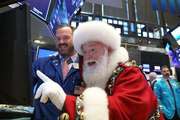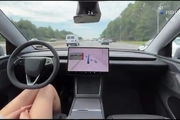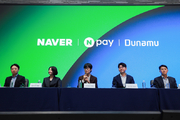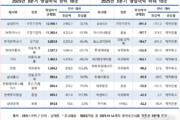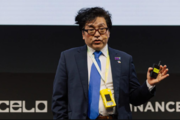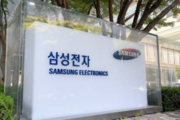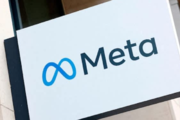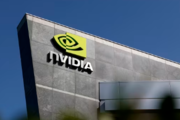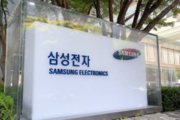
[News Space=Reporter seungwon lee] Volvo Cars Korea (CEO Lee Yoon-mo) saw its operating profit increase last year, but its sales and net profit decreased. This is because the deterioration in the non-operating sector's performance caused a decrease in net profit for the period.
In addition, it is facing complex risks such as a high debt ratio approaching 800%, deterioration of non-operating profit and loss, strengthening of global supply chain and ESG regulations, and two legal disputes. Cash generation is even weakening to the extent that operating cash flow is negative (-KRW 1.1 billion).
Volvo Car Korea is a foreign investment company wholly owned by the Swedish Volvo Car Corporation. It was established in December 1997 and is engaged in the automobile import and sales business in Korea. It changed its name to the current one in 2009, and its current paid-in capital is 2.137 billion won.
According to the 2024 audit report disclosed on the Financial Supervisory Service's electronic disclosure system on the 14th, Volvo Cars Korea's 2024 sales were tallied at KRW 872.6 billion, a 12.8% decrease from the previous year (KRW 1.01 trillion).
Operating profit was 6.6 billion won, up 24.5% from the previous year (5.3 billion won). On the other hand, net profit for the period was 3.8 billion won, down 38% from the previous year (6.1 billion won). Operating profit margin improved to 7.6% from the previous year (5.3%).
The factors that increased operating profit were the reduction in sales management expenses (KRW 5.5 billion decrease) and the reduction in free warranty costs (KRW 36.5 billion → KRW 32.6 billion in the previous year). However, it appears that net income for the period decreased due to a sharp decrease in items other than operating profit (financial income, investment income, etc.).
That is, there was a one-time miscellaneous profit (KRW 7.3 billion) in 2023, but it decreased significantly to KRW 270 million in 2024, and non-operating income also decreased significantly from KRW 7.6 billion to KRW 480 million.
A corporate financial analysis expert analyzed, "Volvo Korea's operating profit increased due to cost efficiency in its main business, but the main cause of the decrease in net income appears to be the deterioration in performance in non-operating sectors, such as the disappearance of one-time profits and a sharp decline in non-operating income."
The dividend is 3 billion won, the same as the previous year, and the dividend payout ratio compared to net income for the period is approximately 79%. Retained earnings increased slightly to 283.1 billion won compared to the previous year (274.2 billion won).
Selling and administrative expenses decreased by 6.6% year-on-year to KRW 77.1 billion. Of this, advertising and publicity expenses were KRW 16.2 billion, salaries were KRW 5.5 billion, and commissions were KRW 8.4 billion.
The purchase transaction with Volvo Car Corporation, a special related party, amounted to KRW 767.9 billion. Transactions with other special related party affiliates such as Polestar Automotive Korea were worth KRW 1 billion.
In terms of financial soundness, the debt ratio was 778%, slightly higher than the previous year (743%). This is a very high level compared to the industry average (200%). This is a sign that capital expansion is insufficient compared to external growth, or that the purchase and operation structure is highly dependent on credit transactions (accounts payable, advance payments, etc.).
A high debt ratio can lead to increased financial pressure as interest rates rise and the cost of financing increases rapidly during economic downturns.
In addition, cash flow from operating activities in 2024 was recorded as negative (-KRW 1.1 billion). This means that cash generation from the main business is weakening, which could lead to a short-term liquidity crisis.
The current ratio is 171%, indicating good liquidity. There are no short-term borrowings, current liabilities are 125.1 billion won, and cash assets are 60.4 billion won.
In terms of legal disputes, two lawsuits for damages are pending. The financial impact is minimal so far, but unexpected losses may occur depending on the outcome of future lawsuits.
A corporate finance analysis expert explained, “Volvo Cars Korea’s growth has slowed, as shown by the 13% decrease in sales. It shows vulnerability to external variables such as intensifying competition in the domestic imported car market, delayed transition to electrification, and exchange rate volatility.” He added, “Despite this, the company improved its operating profit ratio and increased cost efficiency.
He continued, “If price competitiveness weakens due to the weak won and rising parts and logistics costs, there is a risk of a decline in market share,” and analyzed, “We will need to properly address issues such as debt ratio, cash flow, global semiconductor supply, and exchange rate volatility in the future.”














